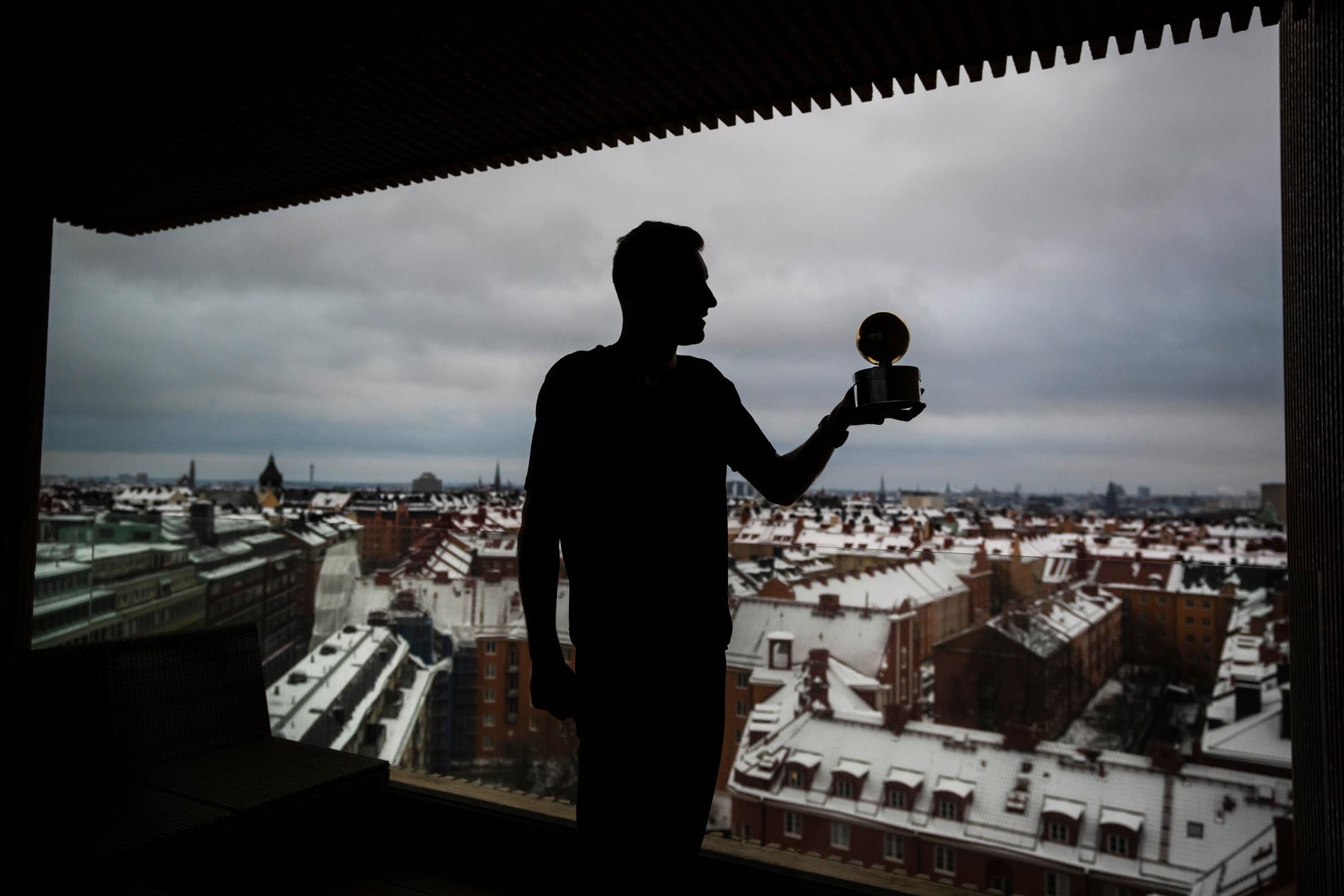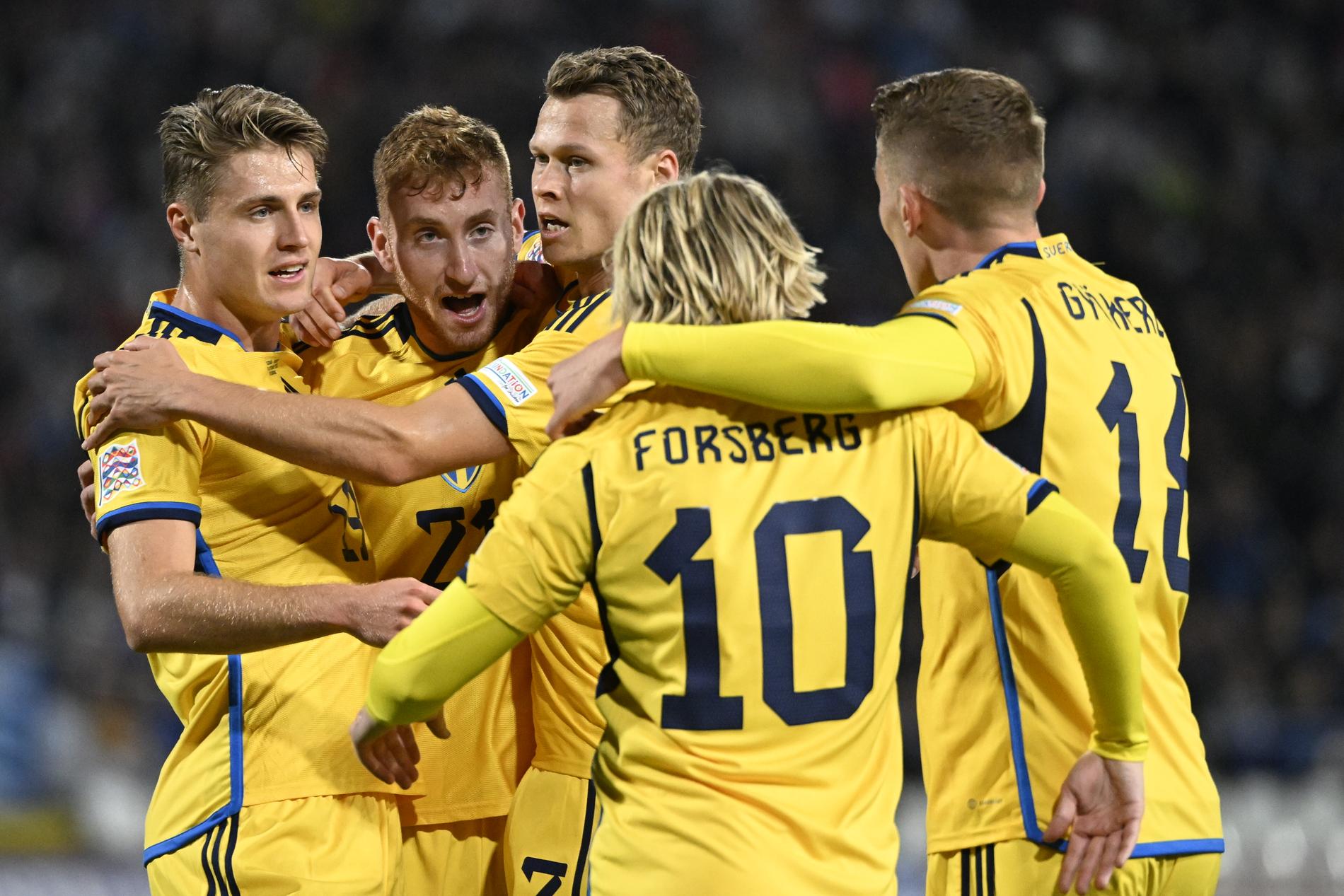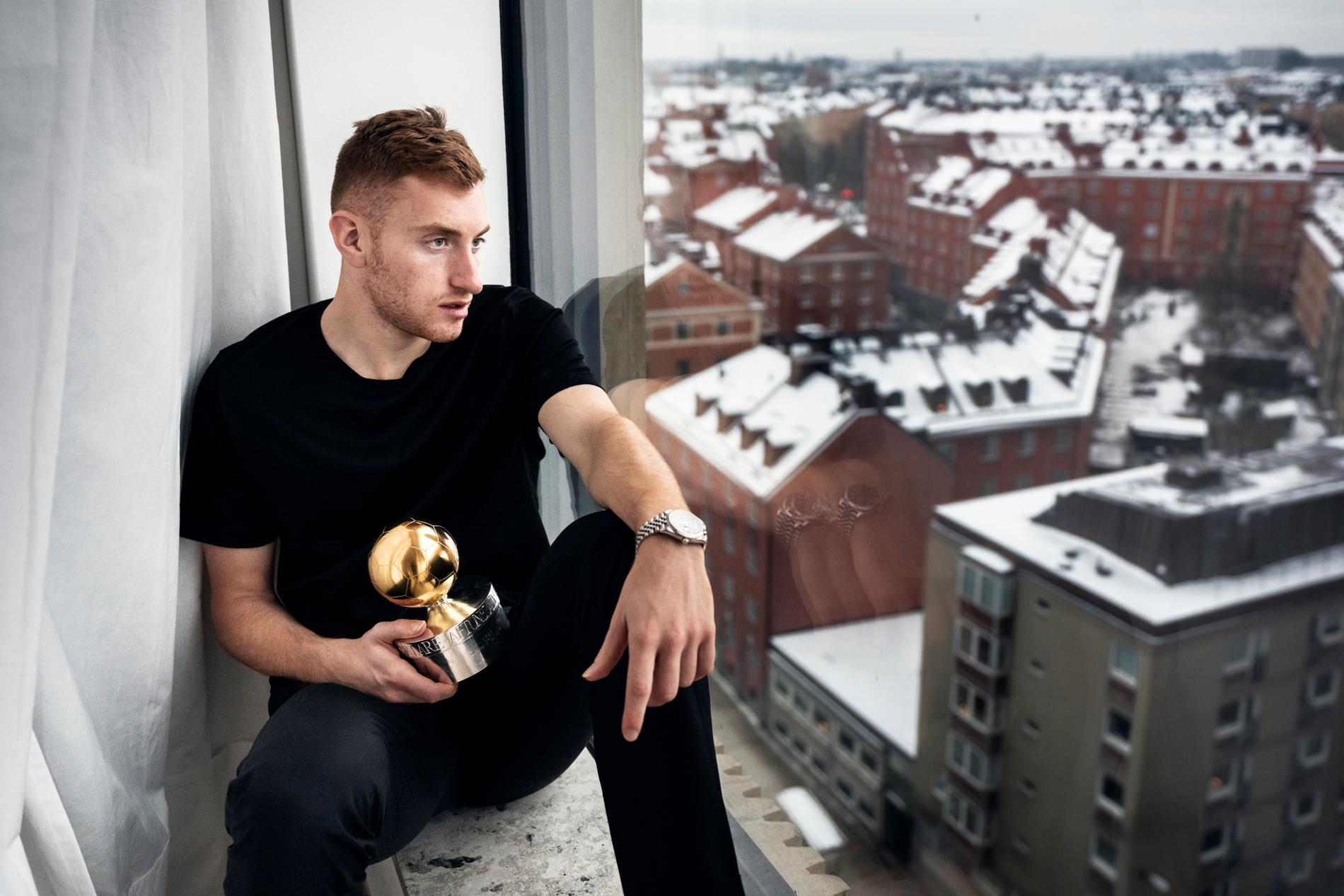
Drop a young player in the world’s toughest league and have him make a name for himself – I can’t think of anything more difficult than that.
But this is easy:
There are over half a million active soccer players in Sweden. In 2022, Vällingby’s Dejan Kulusevski was the best of them all.
Do you remember when the Swedish national team danced and smiled? It feels like forever ago, but on a magical fall evening at Friends Arena, the generational change felt complete, and so was the WC venue. Sweden won a historic victory over Spain, and a whole contingent of young and agile men rushed forward.
Alexander Isaacs was a global star, Emil Forsberg was even better, and Dejan Kulusevski combined hard work and creativity in the same swashbuckling body.
In 2021 the door was wide open, and in 2022 the door was closed with full force.
Missed toilet place, black night in Poland, bruises on the right and pricks on the left. The apocalyptic year is over, a year marked by shattered corpses, shattered theories and shattered dreams.
But it’s a good year for the 22-year-old from Stockholm West.
They never said it publicly, but when the national team management wanted to refocus and rebuild, when they were looking for a new way to play, it was mainly about finding the answer to one question: how do we get out as big as possible by Dejan Kulusevski.
An almost impossible challenge
Because, we, the whole goddamn big football world saw what that could mean.
He grew up at BP, and excelled there. He moved to Atlanta at the age of 16, which is too early for most people but a perfect fit for him. An instinctively super-intelligent teenager was transformed into a willful footballer in Bergamo and Parma, who clearly had what it takes to succeed.
But it is not everything Required to succeed, there are quite a few talents that fall by the wayside anyway. Under Max Allegri, Diane Kulusevski never got that clear role he needed to be the best version of himself. He had to play everywhere and nowhere, and in the end he didn’t play at all.
A year when the national team hit the wall, Dejan Kulusevski faced an almost impossible challenge. He was loaned out to Tottenham in January, to be educated in a system under one of the most demanding football coaches in the world, in what is possibly the toughest football environment in the world.
“There’s the Premier League, we thought you’d play from the start against Kevin De Bruyne, Bernardo Silva, Pep Guardiola and the gang. How does it feel?”
And the thing about Dejan Kulusevski is not just that he stepped in, took his place, and scored after two minutes as Tottenham beat what might be the best football team in the world. The thing about Dejan Kulusevski is that he has completely natural hair.

He’s never nervous, always analytical, and sometimes gets carried away in his own excessive ambitions – but he has no doubt that he belongs, no matter what environment he ends up in. When he was selected at the age of 19 for the senior national team, he wasn’t there to introduce himself, to see and to learn, he said he was “shocked” when he didn’t play from the start. It was about a radical way of self-expression, but equally about a way of being. Not cocky (he’s not), just confident. “There is a pitch, now the match begins, where should I play?”
I must admit I followed him a little more than I followed any other player in the Swedish national team last year, or – I followed him more than I ever followed any player in the national team. Basically, I’ve seen every game he played, because he came to play in the team I’ve lived with for over 40 years. I had thought for a long time that I would not like to see Swedish players play for Tottenham, as that would somewhat shorten one of the few fantasies I have about football. If a man from Vällingby (or Habo) wore a lily-white shirt, it might take away some of the charm in some way.
But it turns out no problem, this time.
Dejan Kulusevski didn’t just become a Tottenham player. Within two weeks he had made himself almost unmissable, when he was injured a few weeks into the fall it was clear something was missing in the team. Richarlison was signed for obscene sums, which was fine – but in the environment around Tottenham everyone was still wondering when Ducky would return.
Who deserves to tie their shoes?
Under Antonio Conte, he was given a highly drilled role that was all about hard work and a free mandate to bring the ball towards the penalty area, challenge and find gaps. It was right for him, it was right for Conte, it was right for the team. He scored goals, played to the level of the goal, was behind the goal, and at the same time made a horse defensively.
The golden ball? The decision was the jury’s action equivalent to poking a ball into an open goal from half a metre.
With Tottenham held to a 2-2 draw with Brentford on Boxing Day, early in the second half after the World Cup break, Kulusevski was by no means exceptional. Nevertheless, it is crucial. The changes of direction are so balanced and subtle that there are not many rivals for him at that moment in the big football world. Here it is enough to find an opening down towards the short side from absolutely any angle, a signature shot that Pierre-Emile Højbjerg can send to the equaliser.
Nothing fancy, just a closed door worship in a totally normal Deki way.
In many ways, Swedish football grapples with many questions about talent development, about how to maximize the refinement of its resources. Sometimes I imagine Dejan Kulusevski as the solver of equations. Lust and spontaneous football? supportive family? Competent young coaches in a competitive environment? The next step in international incubation? Would you choose to play for Sweden instead of Macedonia? To be temperament in different cultures?
Not for everyone. But for Dejan Kulusevski, every move seemed obvious.
When he deviates from the game plan, I find myself frustrated with him, as he is so lucid in his analysis, self-aware and intelligent. If he gets it wrong, he has a solid theory as to why, if he does right, it’s almost impossible for him to stop.
Nothing says it won’t get better just being good more often moving forward.
When Diane was young, his only real weakness was that he was bad at tying his own shoes. Now he’s big, now he’s the best in Sweden, and the question is which players in the Premier League are even worth tying.


